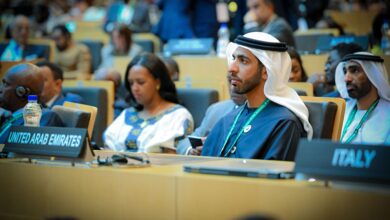‘Kuwait maintains strategic spare capacity, eyes long-term expansion’
Looking ahead, Kuwait is preparing to boost investments in its energy sector. KPC plans to allocate between 10 and 15 billion dinars ($33–50 billion) to expand production capacity, with part of this strategy reflected in a ten-year agreement signed with China last year to supply 300,000 barrels per day. According to Al-Sabah, such long-term contracts highlight the continued importance of Kuwaiti oil as a reliable and secure supply source.

The Kuwait Petroleum Corporation (KPC) CEO Sheikh Nawaf Saud Al-Sabah said Kuwait, OPEC’s fifth-largest producer, holds “significant” spare oil production capacity that it maintains for strategic reasons and can bring to market when needed.
Speaking to Bloomberg, he described the current conditions as “relatively balanced,” noting that the Saudi-led OPEC+ alliance is gradually increasing supply without causing major disruptions.
Al-Sabah emphasized that global demand for oil continues to rise at a pace that justifies these measured increases in output. He explained that the resilience of the market has allowed OPEC+ members to restore production in a systematic way, contributing to price stability.
These dynamics, he added, reinforce the expectation that demand will keep expanding in the years ahead, particularly as economies continue to recover and grow.
Despite the gradual return of idle capacity, oil prices have held steady thanks to strong summer demand, though this balance could shift as consumption softens later in the year. The International Energy Agency projects a potential surplus in 2026 as OPEC+ supply expands and competition from other producers intensifies, he added.
Still, the KPC CEO expressed confidence in China’s outlook, saying that major partners there are witnessing “a very strong increase” in demand that is expected to continue well into the future—a view also shared by Saudi Arabia.
Looking ahead, Kuwait is preparing to boost investments in its energy sector. KPC plans to allocate between 10 and 15 billion dinars ($33–50 billion) to expand production capacity, with part of this strategy reflected in a ten-year agreement signed with China last year to supply 300,000 barrels per day. According to Al-Sabah, such long-term contracts highlight the continued importance of Kuwaiti oil as a reliable and secure supply source.
The corporation is also exploring ways to attract international oil companies to participate in boosting capacity through new investment models, with implementation expected to begin next year.
Moreover, KPC is weighing projects at its Al-Zour refinery, including a potential petrochemical facility or advanced conversion technologies, aimed at diversifying its product portfolio and strengthening its competitiveness in global energy markets.












